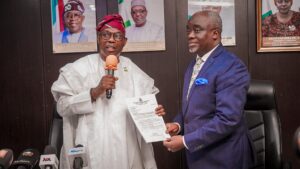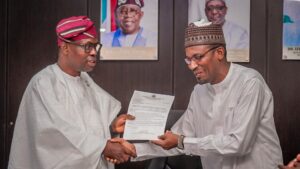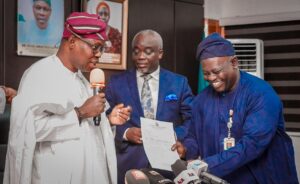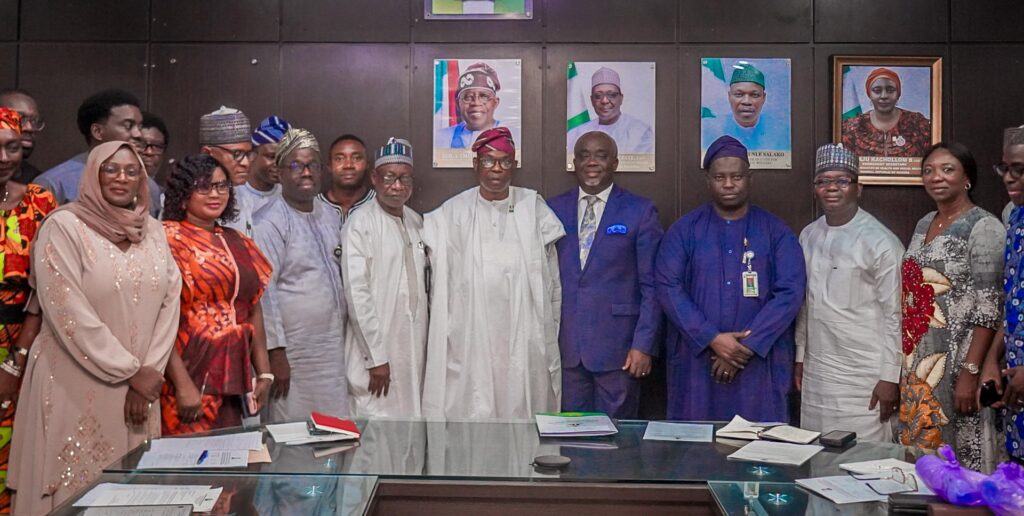By Muhammad Amaan
The Federal Government of Nigeria has inaugurated an Implementation Committee for the National Stakeholders Dialogue to address electricity challenges faced in the Nigeria’s health sector.
The committee objective is to enhance public-private partnerships to ensure a steady electricity supply to public health institutions.
It is expected to build consensus on policy and regulatory frameworks, funding mechanisms, and sustainable strategies for efficient power supply to tertiary and other health facilities across the country.
The Minister of State for Health and Social Welfare, Dr. Iziaq Adekunle Salako while inaugurating the committee on Friday in Abuja, emphasised the need for collaborative action to monitor the implementation of key agreements from the National Dialogue.
Dr Salako stated that the committee is responsible for organizing the dialogue and ensuring broad-based participation across Nigeria and beyond. He noted that the outcome of this dialogue would provide valuable feedback on achieving sustainable power solutions for health facilities.
He highlighting the significance of the initiative and reiterated the government’s commitment to achieving energy sufficiency and sustainable electrification of public healthcare facilities.
The minister shared insights from his visits to various Federal Tertiary Health Institutions, revealing that electricity deficits and high energy costs remain critical challenges.

“As you may be aware, recent media reports have highlighted power supply issues in our public healthcare institutions. The Federal Government has taken steps to address this challenge through initiatives such as a 50% electricity subsidy for public hospitals and the provision of solar power mini-grids in selected hospitals,” he said.
“However, these measures have not substantially resolved the challenges, making it imperative to rethink traditional models of power generation and supply for hospitals. A collaborative, whole-of-government approach is required to tackle these pressing issues.”
Dr Salako urged hospital administrators to explore public-private partnership models, develop business cases, and attract private sector investments in alternative and renewable energy solutions.
He stressed the need for an integrated framework and operational guidelines to guide the deployment of alternative energy solutions, given past issues such as fire incidents, battery malfunctions, and theft of critical energy infrastructure.
“The time for experimentation is over. We can no longer afford business as usual when hospitals are burdened with prohibitive power costs amounting to hundreds of millions of Naira monthly. Now is the time for creativity and innovation to develop and implement smart energy solutions that will strengthen our health system,” he emphasized.
Salako outlined the key objectives of the National Stakeholders Dialogue, which include: “Assessing the existing power policy environment in relation to the urgent energy needs of tertiary and public health facilities.
“Gathering field experiences and practical recommendations for improving power reliability. Identifying alternative and sustainable solutions, including renewable energy options and energy-efficient systems.
“Strengthening public-private partnerships for electricity supply to health institutions.

“Building consensus on policy and regulatory frameworks, funding mechanisms, and sustainability strategies for efficient power supply. And developing a collaborative action plan to monitor the implementation of key agreements.”
According to the minister, the proposed National Dialogue will be hosted in Abuja or Lagos by the Office of the Honourable Minister of State for Health.
Experts from the health and power sectors, alongside key stakeholders, will participate in discussions to formulate actionable recommendations.
“The outcomes will be documented in a communiqué and a Collaborative Plan of Action to ensure effective implementation.
“In order to ensure a well-planned and successful National Dialogue, I am inaugurating the Implementation Committee for the National Dialogue on Power in the Health Sector with the following terms of reference:
“(i) Convene the National Stakeholders Dialogue on Power in the Health Sector. (ii) Ensure the effective implementation of recommendations from the National Dialogue. (iii) Mobilize resources and attract investments for sustainable electrification of public healthcare facilities using a whole-of-government approach.”

Dr Salako expressed gratitude for the priority given to the health sector under President Bola Ahmed Tinubu’s administration.
He also commended the Honourable Minister of Power for his commitment to intersectoral collaboration in addressing energy challenges in healthcare facilities nationwide.
The Permanent Secretary of the Federal Ministry of Health and Social Welfare, Daju Kachollom, represented by Dr Salaudeen Jimoh, Director of Hospital Services, underscored the critical role of electricity in healthcare delivery.
He acknowledged the significant power challenges faced by institutions such as the University College Hospital, Ibadan, and other public hospitals, emphasizing the need for urgent intervention.
Dr Babatunde Ipaye, Vice Chairman of the Implementation Committee, on behalf of other committee members, expressed appreciation to the Honourable Minister and the Federal Government for the initiative.
He pledged the committee’s commitment to delivering tangible results.
The inauguration ceremony concluded with the presentation of letters of service to the committee members, marking the beginning of their mandate to drive sustainable electrification solutions in Nigeria’s health sector.




